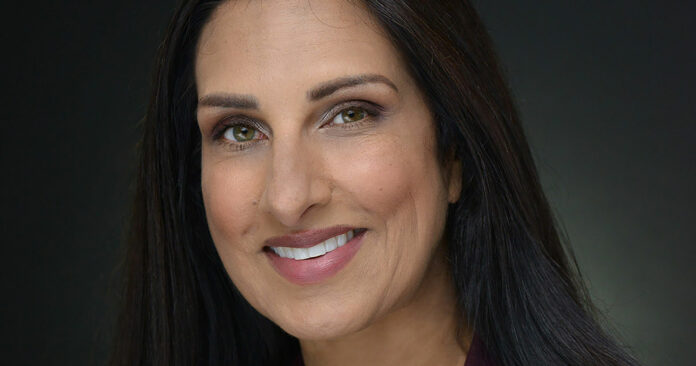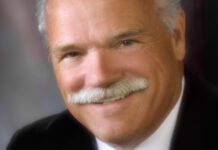Brain health is a critical piece of our overall health. Our amazing (and still mysterious) brain underlies our ability to communicate, make decisions, problem-solve and live a productive and useful life.
At Mee Memorial Healthcare System, we will observe the 10th annual World Brain Day on Saturday, July 22. Started a decade ago by The World Federation of Neurology (WFN), the annual observance is designed to close the gaps in disability awareness and reduce health care barriers that exist for individuals with neurological disabilities.
Maintaining a healthy brain
Taking care of our brains is as straightforward as taking care of our bodies. Here are some simple tips to get you started:
- Exercise: Among everything at our disposal, regular exercise has been shown to slow age-related brain deterioration and maintain cognitive abilities that typically decrease with age. Exercise also helps lower blood pressure, avoid vascular disease leading to stroke and helps maintain a healthy supply of blood pumping to the brain. Exercising is as easy as walking to get your groceries, gardening, cycling or attending an exercise class, among many others. Remember, though, that mental exercise is just as important. Our brain is similar to a muscle — you need to use it or lose it! There are many things that we can do to keep our brain in shape, such as doing crossword puzzles or Sudoku, reading, playing cards or putting together a jigsaw puzzle. Consider it cross-training your brain. Incorporate different types of activities to increase the effectiveness.
- Sleep: A good night’s rest plays an important role in our brain health. Yes, you can actually sleep your way to better cognition! Sleep keeps you sharp, focused and able to make thoughtful decisions. While different age groups require different amounts of sleep, the general recommendation is around six to seven hours a night. Those with sleep disturbances should ask their doctor about medical intervention. In particular, sleep apnea is a disorder that involves repeated stopping and starting of breathing during sleep, which can lead to low oxygen levels. Studies show that sleep apnea may increase the risk of cognitive decline and dementia. The bottom line is that sleep keeps us sharp, focused and able to make thoughtful decisions. While different age groups require different amounts of sleep, the general recommendation is around six to seven hours a night.
- Environment: Our surroundings can also influence brain health. Environmental toxins in water, food and the air can all lead to neurological issues such as stroke, neurodevelopmental and neurodegenerative disorders. Another environmental risk involves repetitive or major head trauma caused by accidents or while participating in extreme sports.
- Diet: A balanced, nutritional diet is not only good for our body but our brains as well. Research shows that the best brain foods are the same ones that protect your heart and blood vessels, including green, leafy vegetables, fatty fish, berries, tea and coffee and nuts such as walnuts. Just as there is no magic pill to prevent cognitive decline, no single brain food can ensure a sharp brain as we age. The most important strategy is to follow a healthy dietary pattern that includes a lot of fruits, vegetables, legumes, and whole grains. And try to stay away from over-processed foods and saturated fat.
World Brain Day
World Brain Day was established by the World Federation of Neurology in 2014 as a way to bring public awareness to a different topic in neurological health each year.
The official theme for the 10th annual World Brain Day is “Brain Health and Disability,” chosen to help inspire global initiatives to close the gaps in disability awareness and reduce health care barriers that exist for individuals with neurological disabilities.
Visit wfneurology.org/world-brain-day-2023 for more information on how to get involved in this year’s World Brain Day.
World Brain Day is framed by five key aims:
- Prevention: Brain disabilities can be prevented, treated and rehabilitated.
- Awareness: Brain health awareness can reduce the disability associated with brain disorders.
- Access: Universal access to care, treatment, rehabilitation and assistive technology is essential.
- Education: Increasing equity for those living with brain disabilities.
- Advocacy: Brain health is a human right that applies to everyone, everywhere.
Brain health is complex
The brain is an incredibly vascular organ. A rich supply of arteries and veins help with the delivery of nutrients, as well as the removal of toxins and by-products of metabolism, in order to keep it healthy.
When that blood flow is interrupted, it affects brain function and that results in changes in the way information travels along the brain’s pathways. This can impact how we move, how we sense things like hearing or touch, the way we think about the world and people around us, how we perceive a situation, and how we behave.
All of the things that the brain is responsible for — physical and mental — are part of brain health. While often spoken about separately, mental health is a central part of brain health and they are not separate or distinct.
Understanding this can help to reduce the stigma that is often associated with mental illness, which, like any physical disorder or disease, is a health problem and requires appropriate treatment.
Consider this: The three major brain conditions of our lifetime — stroke, dementia and depression — are all interrelated and all happening in the same organ. If a person has been diagnosed with one of those three conditions, their risk of the other two increases.
Because access to care is so important, medical systems such as MMHS play a significant role in overall brain health. Identifying issues early and referring patients to neurologists and other appropriate brain specialists is key.
Raising awareness about brain health and disability will help ensure that people with neurological disabilities receive the care and rehabilitation they need to reach their full potential.














